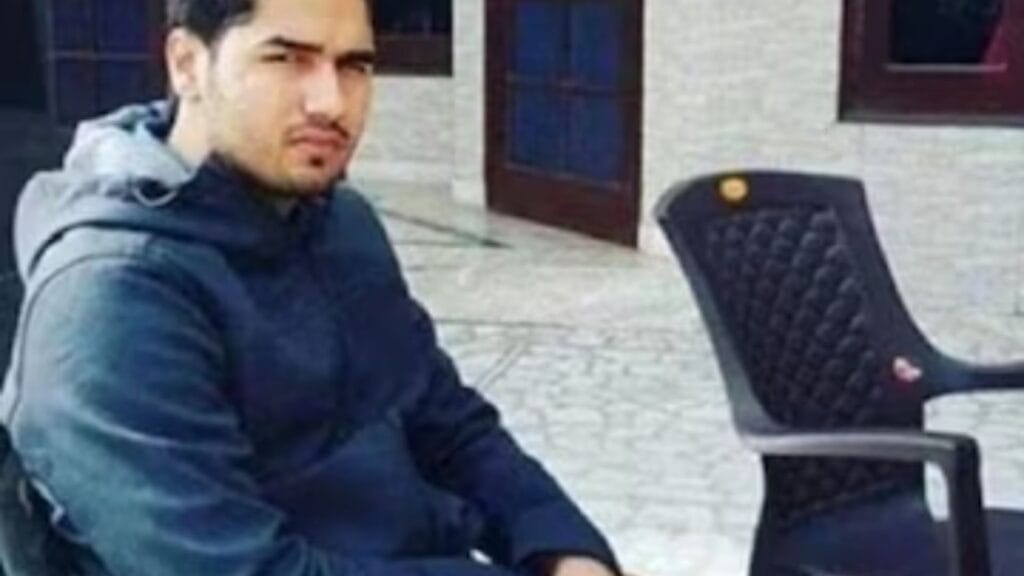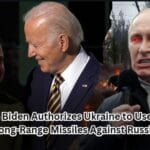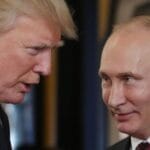In recent news, terrorist Arshdeep Dalla, a key figure in the Khalistani movement and an aide to the now-deceased Hardeep Singh Nijjar has been detained by Canadian authorities. This arrest, connected to a shootout that occurred around October 27-28, marks a significant turn of events, especially as India has been pushing for action against Khalistani terrorists operating from Canadian soil. However, the situation is more complicated than it appears on the surface, and it sheds light on the ongoing friction between Canada and India.

Who is Arshdeep Dalla?
It isn’t the first time controversy has surrounded Arshdeep Dalla. He possesses deep ties with extremist organizations, such as the Khalistan Tiger Force and the International Sikh Youth Federation with which he has assisted in orchestrating much violence in India, especially in Punjab. His local activities by no means exclude international implications, since he has associations with terror organizations such as Lashkar-e-Taiba and Pakistan’s Inter-Services Intelligence, as Indian intelligence agencies have documented.
Dalla started his Khalistani activities in 2020. He was involved in the setting up of terrorist modules, cross-border arms smuggling, and financing targeted killings. His terrorist roots were confirmed when he was accused of taking part in a slaying, in 2021, of a Sikh activist at Moga and later grenade attacks in Punjab in 2022. His most notorious link, however, was with Hardeep Singh Nijjar, who was assassinated outside a gurdwara in British Columbia in June 2023.
From what has been observed, through arrests and the investigations that the Canadian police have made on Dalla, mixed reactions have come out on a scale from both sides. Some feel this is a positive step because, after all of these, there can be an action taken against him. According to the sources, extradition, especially at present under diplomatic tensions, is “next to impossible.” The truth is, though Dalla is being detained, it remains to be seen if Canada would take concrete steps to deal with his terrorist connection or let him scot-free since the country has been doing that with other Khalistani operatives in the past.
Diplomatic Tensions Between Canada and India
The issue of Khalistani terrorism in Canada has been a longstanding cause of friction between Ottawa and New Delhi. Indian officials have made several accusations against Canada for allowing Khalistani terrorists to find shelter on its soil, some of whom have directly been connected with violent activities against India. Further tensions between the two countries were introduced when Canadian Prime Minister Justin Trudeau stirred things up by suggesting that India might have had a role in Nijjar’s murder.
India has shown growing concern over what is reflected as Canada’s laxity on those, like Dalla and others involved in the promotion of separatism and terrorism. Indians felt frustrated by the reluctant nature with which the country has hindered its cooperation processes in dealing with these elements who, without a check, had enjoyed absolute freedom of movement to carry out their violent schemes. Despite Trudeau’s claims of promoting the rights of minorities, his inactions speak louder than his words have done so to many. Many wonder if his government is more interested in protecting these terrorists for political reasons rather than justice.
This is a straight attempt by Trudeau to maintain political support from certain sections of the Sikh community in Canada. In his process, he is causing damage to the bilateral relationship between India and Canada. He is more keen to appease those terror mongers than strengthening diplomatic ties or ensuring justice for the victims of terrorism. This can prove frustrating for India and may soon create a chasm between the two nations that may take years to mend.
What Will Happen When Trump Returns to Power?
In the future, a political change may occur in the United States and transform the politics of India-Canada. The chances are high that Donald Trump, who will assume the presidency in 2025, may act far more uncompromisingly than the current administration against Khalistani terrorists. For sure, the incumbent administration, especially Donald Trump, has expressed vociferous support for India and its effort to tackle terrorism. Certainly, his government will not allow any foreign power to resort to a policy of protecting such terror groups at its cost, the cost of impacting US-India relations.
I would think that when Trump takes office, there could be a huge shift in the approach the US makes regarding the Khalistani issue Canada faces. The US could pressure Canada to take a more concrete action, and this may mean the extradition of Dalla to India for trial. He could also imply in his stance on terrorism that he cannot look the other way when such people are present in Canada.
Will Dalla Get Away?
It all seems quite over to me for Dalla himself. The walls are closing in on him, and although he may have temporarily escaped, so to speak, to Canada at least for the time being, I do not think he will ever be out of reach for justice for too long. His arrest can signal nothing other than the start of his inevitable downfall. The Punjab police have been quite proactive in catching up with members of his gang and have already linked him to several murders, including that committed in Madhya Pradesh.
I also believe that Dalla’s former associate, Gurpatwant Singh Pannu, will not be far behind. He has been living with the protection of the Canadian government, but that might not last long. When this comes up on both sides of the US and India, there is little chance that even Trudeau’s protection will be able to save these terrorists. It won’t take long for Pannu to be tracked down, and I believe the creature will be found dead, like a dog, without anyone to protect it.
In conclusion, although the arrest of Arshdeep Dalla is indeed a step in the right direction, it would require one to remain vigilant and observe if anything comes of this arrest regarding consequences for his terrorist activities. Now, it’s Canada’s turn, but it’s getting hotter for them, especially since the political pressure is mounting both from India and the US. I think it’s only a matter of time before these terrorists are held accountable. How the situation unfolds will determine whether Trudeau chooses to take action based on justice, or continues to protect these extremists for political advantage.
Analysis by Atul Raj






